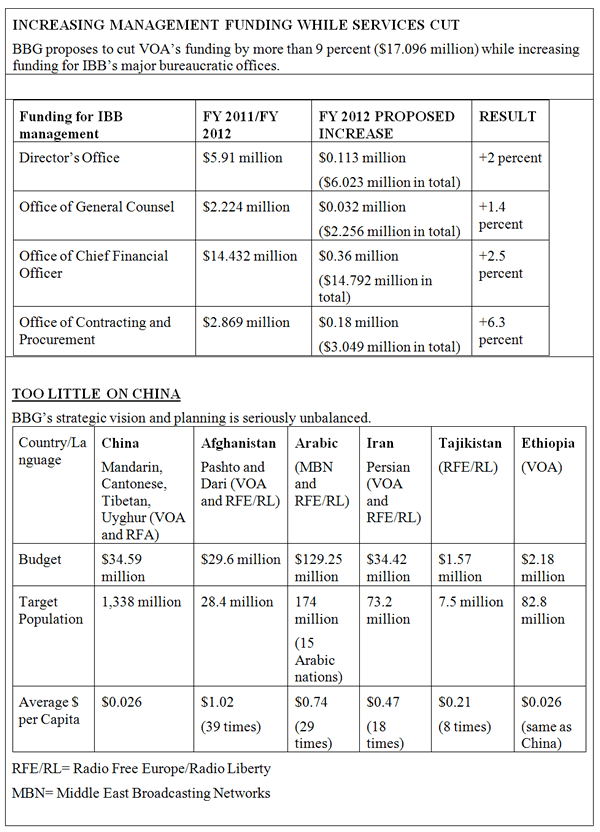The Broadcasting Board of Governors (BBG) recently released its 2013 budget request, which slashes Voice of America (VOA) funding by more than $17 million while increasing funding for major bureaucratic offices inside the International Broadcasting Bureau. A reprioritization is clearly necessary. (article continued below chart)
This disturbing trend focuses on making U.S. international broadcasting a global media service, with digital media distribution at the hub, much like the Internet-focused CNN model. At the same time, actual broadcasting services are being cut, resulting in lost viewers and listeners who, since they often have no Internet access, are deprived of trustworthy and important news sources.
Additionally, the BBG budget request reveals a continuing problem with strategic priorities. In China, the U.S. target audience is over 1.33 billon people. For this huge number of people, we spent around $34.6 million in broadcasting efforts in 2010. This works out to less than $0.03 per person per year. In Tajikistan, we spent $1.57 million to reach 7.5 million people, or $0.21 per person. We should not be spending more than eight times as much per capita on public diplomacy broadcasting in Tajikistan than in China. China’s public diplomacy efforts are rapidly growing, yet in 2010 we spent 18 times as much per capita in Iran, 29 times as much per capita in outreach to Arab speakers, and 39 times as much per capita in Afghanistan.
Of course, the Middle East and other Muslim countries are important strategic targets for U.S. broadcasting. Perhaps instead of cutting over $17 million from VOA in 2013, that money and more could be wisely spent on broadcasting to China. An added emphasis on broadcasting in China will let the U.S. respond to China’s messaging blitz.
Instead of increasing funding to bureaucratic offices and cutting back on VOA, the opposite should be done. Cutting back on bureaucracy and increasing funding to successful broadcasts will allow the U.S.’s message to reach more people at lower cost, which is always a win-win.

































2 Replies to “BBG Budget: Voice of America Slashed, Fewer Broadcasters, More Bureaucrats”